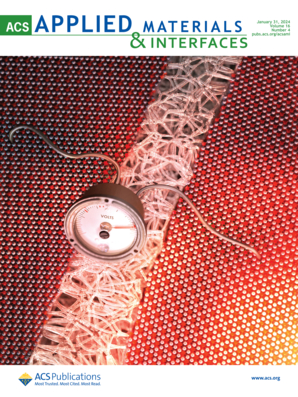人气线索和同行认可对自信型社交媒体广告的影响
IF 8.3
2区 材料科学
Q1 MATERIALS SCIENCE, MULTIDISCIPLINARY
引用次数: 0
摘要
社交媒体平台(如 Facebook)经常会展示鼓励直接购买或安装应用程序的 "行动号召"(CTA)广告。这些广告会显示人气提示(如 "赞 "的数量)和同行认可(如 "赞 "该广告的朋友)。虽然这些信号可以对信息性广告的用户参与度产生积极影响,但我们的研究表明,它们可能会对果断的 CTA 广告产生反作用。通过在 Facebook 上进行的实地测试和与激励机制兼容的实验,我们发现人气提示并不能提高用户参与度,而且同伴背书实际上会损害自信型 CTA 广告的点击效果。当同伴背书来自不同的朋友时,其负面影响会被放大。造成这种影响的根本原因是用户的说服知识被激活了;他们认为这些信号是对断言式 CTA 的操纵性广告策略,从而产生了心理反应。然而,如果同伴背书来自具有相似偏好的朋友,这种不利影响就会减轻。对于广告商来说,我们的研究结果表明,在评估断言式 CTA 广告效果时,应考虑人气和同伴背书指标。Facebook 等平台也应考虑将这些信号作为此类广告的可选项。总之,谨慎使用这些社交证明信号来传递明确的购买/安装信息可以改善广告效果。本文章由计算机程序翻译,如有差异,请以英文原文为准。
The Effect of Popularity Cues and Peer Endorsements on Assertive Social Media Ads
Social media platforms, like Facebook, often display assertive call-to-action (CTA) ads that encourage direct purchases or app installs. These ads can show popularity cues (e.g., number of “likes”) and peer endorsements (e.g., friends who “liked” the ad). Although such signals can positively influence user engagement for informational ads, our research reveals they can backfire for assertive CTA ads. Through field tests on Facebook and incentive-compatible experiments, we find that popularity cues do not improve and that peer endorsements actually harm click performance on assertive CTA ads. The negative effect of peer endorsements is amplified when they come from dissimilar friends. Underlying this effect is users’ persuasion knowledge getting activated; they view these signals as manipulative advertising tactics for the assertive CTAs, resulting in psychological reactance. However, the detrimental impact is mitigated when peer endorsements come from friends with similar preferences. For advertisers, our findings suggest discounting popularity and peer endorsement metrics when evaluating assertive CTA ad performance. Platforms, like Facebook, should also consider making these signals optional for such ads. Overall, exercising discretion with these social proof signals for assertive purchase/install messaging can improve advertising outcomes.
求助全文
通过发布文献求助,成功后即可免费获取论文全文。
去求助
来源期刊

ACS Applied Materials & Interfaces
工程技术-材料科学:综合
CiteScore
16.00
自引率
6.30%
发文量
4978
审稿时长
1.8 months
期刊介绍:
ACS Applied Materials & Interfaces is a leading interdisciplinary journal that brings together chemists, engineers, physicists, and biologists to explore the development and utilization of newly-discovered materials and interfacial processes for specific applications. Our journal has experienced remarkable growth since its establishment in 2009, both in terms of the number of articles published and the impact of the research showcased. We are proud to foster a truly global community, with the majority of published articles originating from outside the United States, reflecting the rapid growth of applied research worldwide.
 求助内容:
求助内容: 应助结果提醒方式:
应助结果提醒方式:


